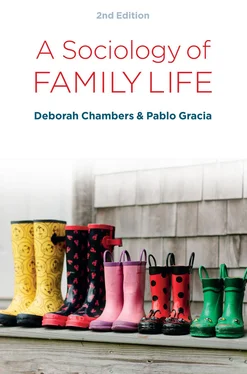72 68
73 69
74 70
75 71
76 72
77 73
78 74
79 75
80 76
81 77
82 78
83 79
84 80
85 81
86 82
87 83
88 84
89 85
90 86
91 87
92 88
93 89
94 90
95 91
96 92
97 93
98 94
99 95
100 96
101 97
102 98
103 99
104 100
105 101
106 102
107 103
108 104
109 105
110 106
111 107
112 108
113 109
114 110
115 111
116 112
117 113
118 114
119 115
120 116
121 117
122 118
123 119
124 120
125 121
126 122
127 123
128 124
129 125
130 126
131 127
132 128
133 129
134 130
135 131
136 132
137 133
138 134
139 135
140 136
141 137
142 138
143 139
144 140
145 141
146 142
147 143
148 144
149 145
150 146
151 147
152 148
153 149
154 150
155 151
156 152
157 153
158 154
159 155
160 156
161 157
162 158
163 159
164 160
165 161
166 162
167 163
168 164
169 165
170 166
171 167
172 168
173 169
174 170
175 171
176 172
177 173
178 174
179 175
180 176
181 177
182 178
183 179
184 180
185 181
186 182
187 183
188 184
189 185
190 186
191 187
192 188
193 189
194 190
195 191
196 192
197 193
198 194
199 195
200 196
201 197
202 198
203 199
204 200
205 201
206 202
207 203
208 204
209 205
210 206
211 207
212 208
213 209
214 210
215 211
216 212
217 213
218 214
219 215
220 216
221 217
222 218
223 219
224 220
225 221
226 222
227 223
228 224
229 225
230 226
231 227
232 228
233 229
234 230
235 231
236 232
237 233
238 234
239 235
240 236
241 237
242 238
243 239
244 240
245 241
246 242
247 243
248 244
249 245
250 246
251 247
252 248
253 249
254 250
255 251
256 252
257 253
258 254
259 255
260 256
261 257
262 258
263 259
264 260
265 261
266 262
267 263
268 264
269 265
270 266
271 267
272 268
273 269
274 270
A Sociology of Family Life
Change and Diversity in Intimate Relations
2nd Edition
DEBORAH CHAMBERS & PABLO GRACIA
polity
Copyright © Deborah Chambers & Pablo Gracia 2022
The right of Deborah Chambers & Pablo Gracia to be identified as Authors of this Work has been asserted in accordance with the UK Copyright, Designs and Patents Act 1988.
First edition published in 2012 by Polity Press
This second edition first published in 2022 by Polity Press
Polity Press
65 Bridge Street
Cambridge CB2 1UR, UK
Polity Press
101 Station Landing
Suite 300
Medford, MA 02155, USA
All rights reserved. Except for the quotation of short passages for the purpose of criticism and review, no part of this publication may be reproduced, stored in a retrieval system or transmitted, in any form or by any means, electronic, mechanical, photocopying, recording or otherwise, without the prior permission of the publisher.
ISBN-13: 978-1-5095-4135-5
ISBN-13: 978-1-5095-4136-2 (pb)
A catalogue record for this book is available from the British Library.
Library of Congress Control Number: 2021939310
by Fakenham Prepress Solutions, Fakenham, Norfolk NR21 8NL
The publisher has used its best endeavours to ensure that the URLs for external websites referred to in this book are correct and active at the time of going to press. However, the publisher has no responsibility for the websites and can make no guarantee that a site will remain live or that the content is or will remain appropriate.
Every effort has been made to trace all copyright holders, but if any have been overlooked the publisher will be pleased to include any necessary credits in any subsequent reprint or edition.
For further information on Polity, visit our website: politybooks.com
Preface and Acknowledgements
This second edition of the key text A Sociology of Family Life forms an authoritative guide to sociological debates about family life, intimacies and personal relationships. The book provides a topical and comprehensive guide to key sociological debates and empirical research on personal and family life. It draws together, in an accessible form, some of the most significant concepts, approaches and events that have contributed to sociological research on family life and intimacies. This edition has been revised throughout. It could not have happened without Pablo Gracia’s superb co-authorship.
This new edition includes:
revised and updated chapters
coverage of recent development in the field
coverage of pertinent new movements, debates and events
an extensive updated set of references
a set of questions for reflection and discussion at the ends of chapters.
We extend our thanks to the following:
our respective universities, Newcastle University and Trinity College Dublin, for their supportive research environments
Jonathan Skerrett, commissioning editor at Polity for his excellent guidance in facilitating the production of this second edition and, most importantly, for inviting Pablo Gracia to collaborate in the project
Séan Lennon for his excellent contribution as research assistant in conducting an exhaustive literature review, editing references and making relevant suggestions for the new content of the book
our families, friends and personal communities who have supported and sustained us while the book was written, both before and during the Covid-19 lockdown.
Deborah Chambers and Pablo Gracia
Newcastle and Dublin
April 2021
Recent scholarship on personal relationships and family life suggests that new intimacies and new kinds of commitment are being forged in present-day societies. Relationships and living arrangements that are now commonplace include single-parent families, cohabiting couples, post-divorce and ‘blended’ families, same-sex unions, ‘living apart but together’ (LATS), ‘families of choice’, ‘friends as family’ and queer intimacies. Family diversity is said to have coincided with aspirations towards more ‘democratic relationships’ in the sphere of intimacy. Strong desires for more egalitarian and more open personal relationships influences not only how parents relate to their children, with a new emphasis on childhood agency and the rights of the child. They also legitimate lesbian, gay, bisexual, transgender and queer (LGBTQ+) relationships. 1
Rising divorce rates, teenage pregnancies, single parenthood, same-sex unions and cohabiting couples are often viewed as threats to the core values of a society. However, this book explains that these trends do not amount to evidence of a decline of commitment and caregiving responsibilities. The wide range of personal relationships and living arrangements across societies is a sign that the concept of ‘family’ is becoming more fluid and variable. The approval and popularity of the term ‘family’, which is being extended to describe close friendships and alternative kinds of intimacies, suggest a strong social yearning to preserve principles of mutual commitment and reciprocity that bind people together. This diversity in living arrangements thrives despite government attempts to standardize families through housing policies, tax breaks for married couples, divorce and post-divorce parenting laws, family planning, and levels of access to new reproductive technologies, and so on.
Читать дальше












